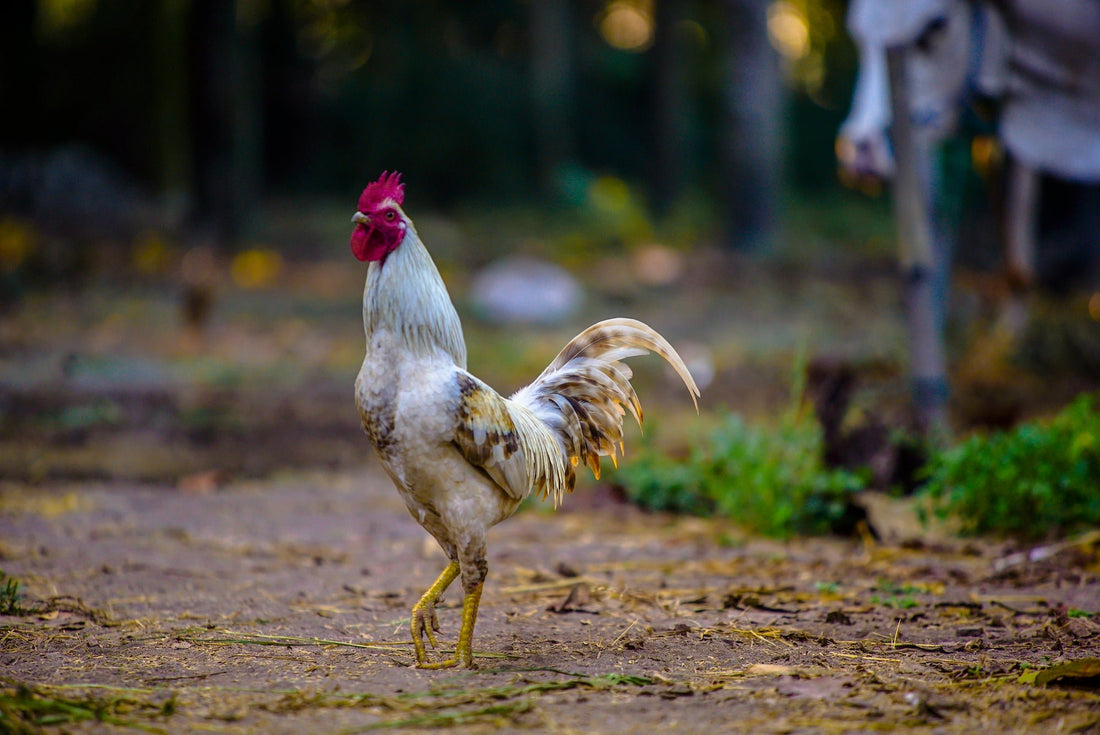In the serene stillness of the pre-dawn world, a sound echoes, clear and strident, piercing the quietude. It's a call that has heralded the day's arrival for millennia — the crow of the rooster. This routine sound, often heard in rural settings and even in bustling cities where backyard chickens roam, has far-reaching significance beyond just signaling the sunrise. The crow of the rooster, a sound so entwined with the break of day, holds profound spiritual symbolism and is deeply woven into the religious fabric of cultures worldwide.
The Rooster in Christianity
In Christian traditions, the rooster holds a poignant place. The bird's crow is forever entwined with the narrative of betrayal and forgiveness, embodied in the story of Peter denying Jesus. As the New Testament recounts, Jesus predicted that Peter, one of his apostles, would deny knowing him three times "before the rooster crows" (Matthew 26:34). This prophecy came to pass during the events leading up to Jesus' crucifixion, lending the rooster's crow a place of significance in Christian teachings.
But the rooster's crow doesn't only symbolize denial and betrayal. In many Christian traditions, it also serves as a symbol of vigilance and resurrection. The rooster's wakeful crowing at dawn embodies the call to awakening — an alarm to the spiritual sleeper to wake up and rise from sin. Moreover, its connection with the break of day aligns it with themes of resurrection, light dispelling darkness, and the dawning of a new era in Christ.
The Rooster in Buddhism
Shifting our focus eastward to Buddhism, the rooster's significance takes a different, yet equally profound form. The rooster is one-third of the Tibetan Buddhist "Wheel of Life," also known as the Bhavacakra, where it represents one of the "Three Poisons" — attachment. It's depicted in conjunction with a pig (representing ignorance) and a snake (symbolizing aversion). These three animals personify the fundamental afflictions that Buddhists believe keep beings tethered to the cycle of rebirth or Samsara.
Despite this seemingly negative depiction, the rooster and specifically its crow hold positive associations in certain Buddhist traditions. In Zen Buddhism, the rooster's crow symbolizes an abrupt awakening from the fog of ignorance, leading to enlightenment. It's a sudden and clear call to understanding and spiritual insight, much like the piercing crow that dispels the quietude of dawn.
The Rooster in Judaism
In Jewish traditions, the rooster, or more specifically its crow, also holds a place of significance. According to the Talmud, the crowing of the rooster is associated with light and God's mercy. In the morning blessings of Judaism, there is a blessing thanking God for giving "the rooster the understanding to distinguish between day and night" (Berakhot 60b). This understanding is a metaphor for spiritual discernment, the ability to distinguish between right and wrong, good and evil.
In the symbolic language of Judaism, the rooster's crowing calls people to serve God. It is a reminder of our duties and responsibilities, a prompt to shake off the darkness and step into the light, fully aware and ready to engage with the world in a mindful and compassionate manner.
The Rooster in Islamic Traditions
In Islamic traditions, the rooster enjoys a position of respect due to Hadiths (sayings and actions of the Prophet Muhammad). It's believed that when a rooster crows, it has seen an angel. Therefore, upon hearing a rooster's crow, the faithful are encouraged to ask Allah for his bounties. The rooster's crow becomes a signal of divine presence, a trigger for invoking blessings and grace.
Furthermore, the rooster's timely crowing is seen as a natural alarm for the faithful to wake up for the pre-dawn prayer, the Fajr. It signifies the end of the night and the onset of a new day — an important time of prayer and reflection for Muslims worldwide.
Each crow of the rooster, as day breaks, is a symphony of spiritual symbolism echoing across various cultures and religions. Whether it's a reminder of betrayal and forgiveness, a call to spiritual awakening, a symbol of attachment, or an alarm for prayer, the rooster's crow is much more than just a signal of dawn. It's a testament to how a simple, everyday occurrence can take on profound meaning and significance in our spiritual lives.
So, the next time you hear a rooster's crow, remember its rich tapestry of spiritual significance, and perhaps take a moment to reflect. Because in that humble crow lies a universe of spiritual wisdom — a call to awakening, a reminder of duty, and an invitation to seek a new dawn in our spiritual journey.

